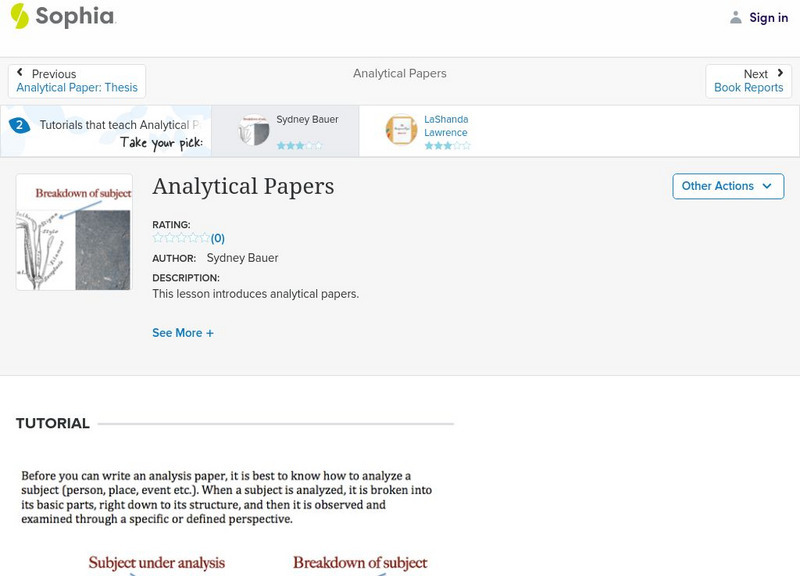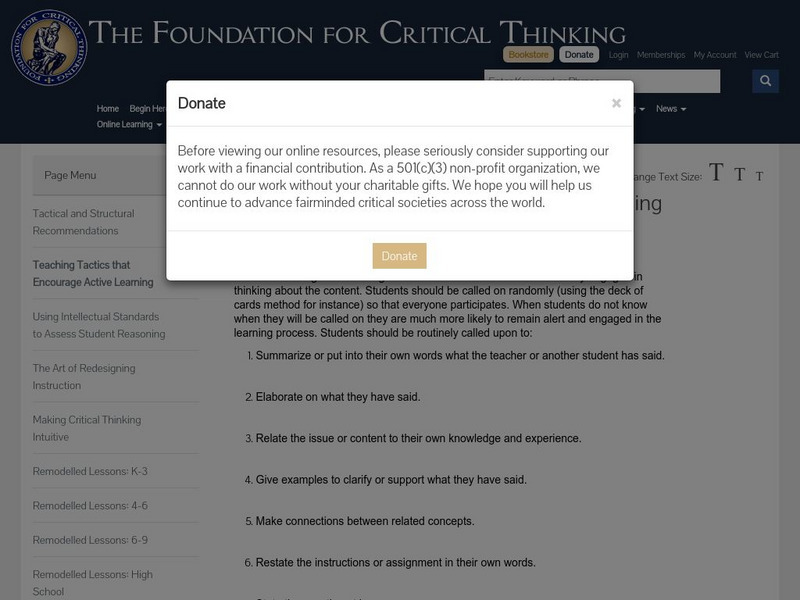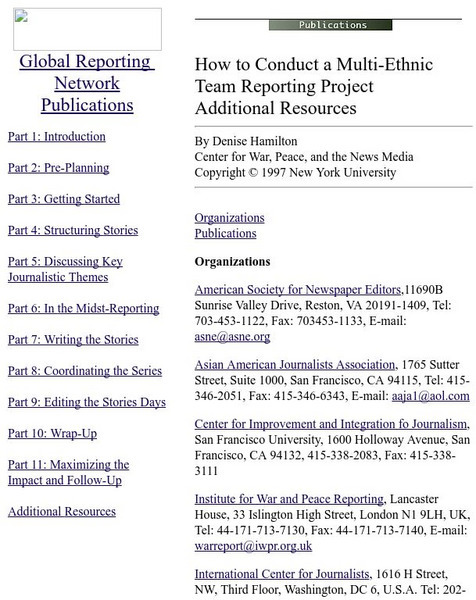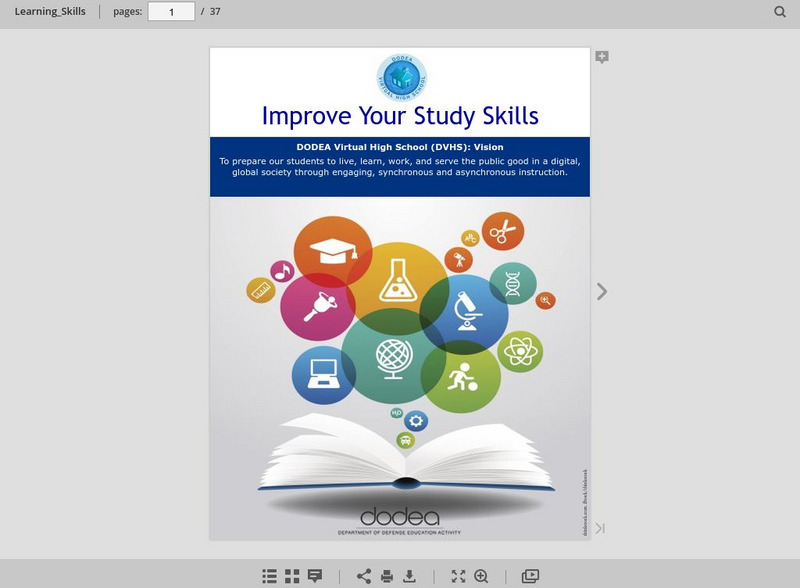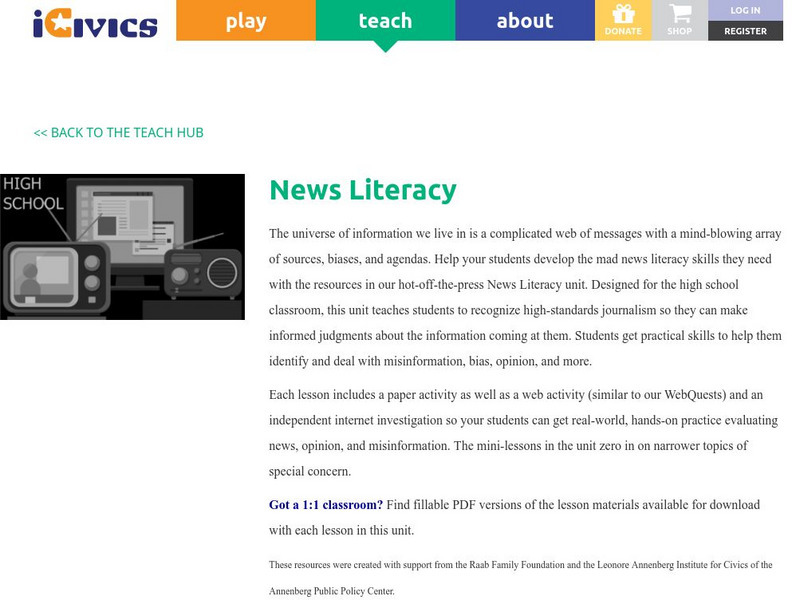Georgia Department of Education
Ga Virtual Learning:"distinguishing Fact, Opinon, & Reasoned Judgement" [Pdf]
This is a PDF entitled "Distinguishing between Matters of Fact, Matters of Opinion, and Matters of Reasoned Judgement," which focuses on how to separate fact from opinion, provides examples, and offers a practice activity.
Northern Illinois University
Challenging Students, and How to Have More of Them [Pdf]
Phi Delta Kappa shares Alfie Kohn's research-based information about how to increase student engagement. Ideas are provided for increasing student engagement during all subject areas.
Other
Monash University Library: Evaluating Web Pages
Use this guide to learn how to evaluate web pages. This concise guide also addresses why evaluation is important. CCSS.ELA-Literacy.CCRA.R.7
Virtual Salt
Virtual Salt: Introduction to Critical Thinking
An introduction to the concept of Critical Thinking examines the true definition and gives examples where it can be used as a constructive force.
Other
The American Journalism Review
This is an excellent newsletter-style site for the American Journalism Review. Aside from a ton of articles and pertinent information, it offers essential resources, first rate tools, and a huge database for journalists.
Sophia Learning
Sophia: Evaluating Digital Information: Tutorial
In this slideshow tutorial, students will review how to evaluate digital sources. During the digital evaluation process, students are directed to analyze the following: authority, accuracy, objectivity, and currency. After the tutorial,...
Sophia Learning
Sophia: Analytical Papers
This lesson focuses on analytical papers; it explains how to analyze a subject and the goal of analytical papers. They must include a defined or specific perspective from which to evaluate, an evaluation, and the breakdown of the...
Other
The Critical Thinking Community: Tactical and Structural Recommendations
16 brilliant suggestions for creating critical thought in the classroom.
Other
Critical Thinking Community: Teaching Tactics That Encourage Active Learning
Eleven great ideas for teachers to engage their students in active learning and listening.
Boston University
How to Conduct a Multi Ethnic Team Reporting Project
This site offers a phenomenal plan for assembling a culturally diverse journalism team to work on a story (or series of stories) of social significance. This extensive guideline provides step by step instructions. (Note: some links may...
Media Smarts
Media Awareness Network: Lesson Plan: How to Analyze the News [Pdf]
Lesson plan focusing on the importance of understanding how the news is a product with a specific scope, structure, slant and style at the forefront of its production.
International Reading Association
Reading Online: Classroom Strategies for Exploring Authenticity in the Media
Four innovative classroom activities that actively engage students in analyzing and criticizing media messages. SL.11-12.2 Eval&Integrate sources
Virtual Salt
Virtual Salt: Evaluating Internet Research Resources
This site by Virtual Salt offers a great deal of information on evaluating internet sources. Gives tips on what to look for when screening information for usefulness and reliability.
University of North Carolina
University of North Carolina: Writing Center: Handouts: Evidence
What kinds of evidence best support the points you make in a paper? Where can you find the evidence you need? This handout answers all these questions and more, including the difference between primary and secondary sources. You'll also...
University of California
Uc Berkeley Library: Critical Evaluation of Resources
Questions to ask yourself when determining if a source is reliable. Discusses difference between primary and secondary source. List of reference sources and links to other sites that teach you how to evaluate sources....
Stanford University
Stanford U.: Evaluating Information: The Cornerstone of Civic Online Reasoning
This report from the Stanford History Education Group describes the conclusions of their work in field testing a set of assessments of civic online reasoning by young people from the middle school to the college level. Middle school...
Texas Education Agency
Texas Gateway: Determining Validity and Reliability of Sources
This lesson will help students decide which sources are valid and reliable for supporting a thesis. It discusses how to evaluate books, articles, websites, and more.
Texas Education Agency
Texas Gateway: Analysis of Relative Values of Specific Data, Facts, and Ideas
[Accessible by TX Educators. Free Registration/Login Required] In this lesson, students can practice finding specific types of sources and learn the questions to ask when evaluating information for a persuasive essay.
Department of Defense
Do Dea: Improve Your Study Skills
Having trouble studying for tests or comprehending new material? This in-depth guide provides a multitude of ways to help you acquire reading and critical thinking skills necessary for understanding new material.
NPR: National Public Radio
Npr: Five Ways Teachers Are Fighting Fake News
Since a recent Stanford study showed that students at practically all grade levels can't determine fake news from the real stuff, the push to teach media literacy has gained new momentum. This article gives five quality examples of...
Texas Education Agency
Texas Gateway: Analyze the Relevance, Quality, and Credibility of Evidence
[Accessible by TX Educators. Free Registration/Login Required] In this lesson, students will learn to analyze the quality, relevance, and credibility of evidence used to support an argument.
Lumen Learning
Lumen: Building Credibility Through Source Integration
Well-integrated sources build credibility in several ways: Source material adds evidence and support to your argument, the signal phrase highlights the reputation and qualifications of the source, and effective citation makes it easy for...
National Science Teachers Association
Nsta: Science & Engineering Practices: Obtaining, Evaluating, Communication
This site from NSTA includes a progression of the Science and Engineering Practice for obtaining, evaluating, and communicating information. In addition, thereare performance expectations that make use science and engineering practices.
iCivics
I Civics: News Literacy
Use this library of mini-lessons to teach students to recognize high-standards journalism so they can make informed judgments about the information coming at them and to help them identify and deal with misinformation, bias, opinion, and...
![Ga Virtual Learning:"distinguishing Fact, Opinon, & Reasoned Judgement" [Pdf] Unit Plan Ga Virtual Learning:"distinguishing Fact, Opinon, & Reasoned Judgement" [Pdf] Unit Plan](https://d15y2dacu3jp90.cloudfront.net/images/attachment_defaults/resource/large/FPO-knovation.png)


